By Aurelia Dávila Pratt
Not too long ago, I attended a memorial service honoring the father of my dear friend, Brittany.
With those I knew and many whom I’d never met, I got to hear about what happened.
In community, we joined in the sacred act of looking back. Printed on the program for all to read was a biography, listing out the timeline of significant moments and milestones. Loved ones shared stories about Jesse’s life. There was an understanding among us that this kind of reflection is necessary to move forward in any meaningful way.
I bore witness as Brittany, her mother, and several family and friends shared tributes of Jesse. He was devoted to his family and incredibly proud of his daughter. He had an entrepreneurial streak and courage to put his ideas into action. He was an Air Force veteran who had a gentle and relaxed disposition. He had a poetic creativity and wisdom and a deep love for nature. He was reserved, kind, good-humored, meticulous in his work, and never in a hurry.
Weeks later, I continued to dwell on that day and Jesse’s life with gratitude, but also with a sadness and regret. Why had I never extended such a curiosity toward Jesse while his physical form was still with us? And yet, in many ways I knew him dearly and deeply because I know his daughter. Understanding Jesse helped me understand Brittany as well.
I found myself laughing, thinking of Jesse’s and Brittany’s endless similarities. Indeed, my dear friend makes so much more sense to me now! And I understand that his story is her story. And our stories are wrapped up together.
Truly, we are story bearers. This is who we are. This is what we do. We bring our stories and the stories of others with us into the present moment.
Through stories, we make sense of things. We take big ideas and bring them down to earth. Stories help us cultivate a posture of gratitude. Stories help us humanize people we are tempted to hate. Stories hold power. They mold us, change us, ground us, and heal us. They propel us toward a more hopeful future.
For all these reasons, I am a lover of All Saints’ Day and the sacred space it carves out for us yearly. Every November 1st, the Western church calendar marks All Saints’ Day.
Across faith traditions, it is a feast day. In the Roman Catholic Church, the tradition that raised me, All Saints’ Day emphasizes canonized as saints in church history (November 1). Then on All Souls’ Day, all the saints who have transitioned from the earthly realm are honored (November 2).
Often, these two days are merged into one celebration of All Saints’ Day. offering us space to reflect on our faith ancestors and on the stories that shape us.
The understanding of saints in both Catholic and Protestant traditions is informed by Hebrews 12:1-2 which reads “…since we are surrounded by so great a cloud of witnesses, let us also lay aside every weight and the sin that clings so closely, and let us run with perseverance the race that is set before us, looking to Jesus the pioneer and perfecter of our faith…”
Often in our Christian contexts, including sermons and teachings, Jesus is the primary focus, and understandably so. But even in scripture, there is significant recognition that those who have gone before us (our ancestors) and those who walk alongside us (our communities of support) are essential parts of our faith ecosystem.
The saints, that “great cloud of witnesses,” empower and energize us as we “run with perseverance the race that is set before us.” In other words, as we navigate the ups and downs of life, it is not only Christ who sustains us. We sustain each other.
Curiosity means we are committing to consistently acknowledge what is true: We are all image bearers with the heartbeat of imago Dei beating in our chests. We embody this truth every time we choose things like nuance and paradox over rigidity and binary thinking. This is complicated and difficult work, but it doesn’t mean we can’t do it. We just need a little practice. All-Saints’ Day is a great place to begin.
Every year, on Dia de los Muertos, I put up photos of those family and friends who have transitioned from this earthly realm. I light candles, and I set out food. I build an ofrenda, and I share stories of our ancestors with my daughter. The past comes, and it joins us in the present moment. Offering love and guidance for an unknown future.
Similarly, on All Saints’ Day we honor the lives of those who have blazed trails of divine love in our world and in our lives. This matters because it reminds us that we are part of a larger narrative. We are connected, and the more we connect with the stories of those who have gone before us, the more we are able to cultivate a listening and curious posture in the present.
In the face of world events, social issues, relationships, and so on, we want to know what happened.
Instead of moving directly into reacting, assuming, or judging, we find ourselves pausing and wondering: What information might I not have? What might I not know or understand? What can I do to learn more? What stories have I not yet heard?
These are more than just questions. They are a paradigm shift. They are healing work, and they are the kinds of questions that can usher heaven to earth.
More than ever, we need to get curious about people’s stories. Curiosity doesn’t necessarily lead to agreement. Curiosity doesn’t mean we sacrifice authenticity, water down our core beliefs, or abandon our justice agendas!
Curiosity means we are committing to consistently acknowledge what is true: We are all image bearers with the heartbeat of imago Dei beating in our chests. We embody this truth every time we choose things like nuance and paradox over rigidity and binary thinking. This is complicated and difficult work, but it doesn’t mean we can’t do it. We just need a little practice. All-Saints’ Day is a great place to begin.
Here, we encounter our faith ancestors up close. We take the lofty idea of “a great cloud of witnesses” and we bring it down to earth. One by one, we are impacted through story-telling and story-receiving.
To be clear, understanding systems in our histories and current realities, including our role in them, is its own spiritual practice that is not to be neglected. Yet, amidst this important work, may we not forget the power of stories as a catalyst for change and healing.
In my book, A Brown Girl’s Epiphany, I explore this:
“When we look only ahead, we begin to wonder if we can endure everything we are facing in these times. But when we look back, we are reminded that our efforts have always been a continuation of those who came before us. We may carry the trauma of our ancestors’ realities on our backs, but we also carry their power. It is a tough as nails kind of power, full of all the grit of those who came before us, making our way a bit easier.
Generation to generation, we are inching our way toward healing. As we inch along, we begin to understand the urgency of naming our stories. We begin to see how our own inner work stands alongside the support of our ancestors and sacred communities. It is like our own holy trinity working miracles in our lives. What was dead can be alive. What was buried can be resurrected.”
To the hopeless, helpless, and overwhelmed: In a world rife with death and domination systems, violence and war, oppression and corruption, perhaps our work as story bearers could be one small step toward the things of life.
We are equipped for at least this much. We are sustained by our faith, and we are supported by a great cloud of witnesses. All Saints’ Day reminds us of this. With this powerful reminder in tow, may we usher heaven to earth, one sacred story at a time.
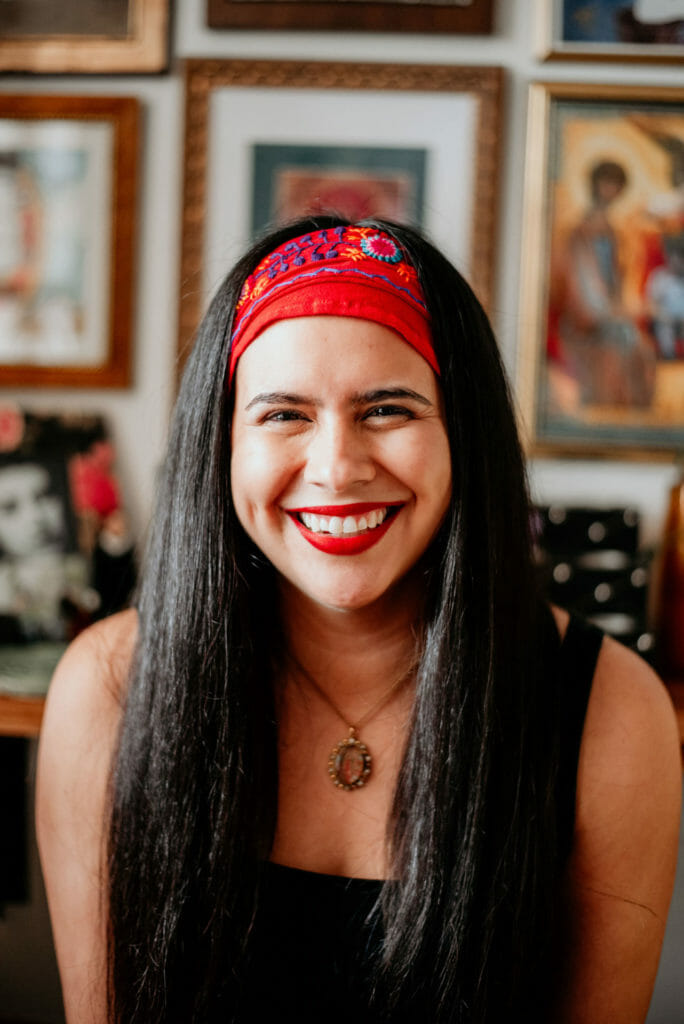
Rev. Aurelia Dávila Pratt is the lead pastor and a cofounder of Peace of Christ Church. She is also the author of A Brown Girl’s Epiphany. Find her on Instagram @revaureliajoy where she is reimagining faith and theology via spoken and written word. A Brown Girl’s Epiphany, is available for purchase wherever books are sold. Learn more at revaureliajoy.com.
Photos courtesy of Chelsa Carr at Crowned by CK Photography.

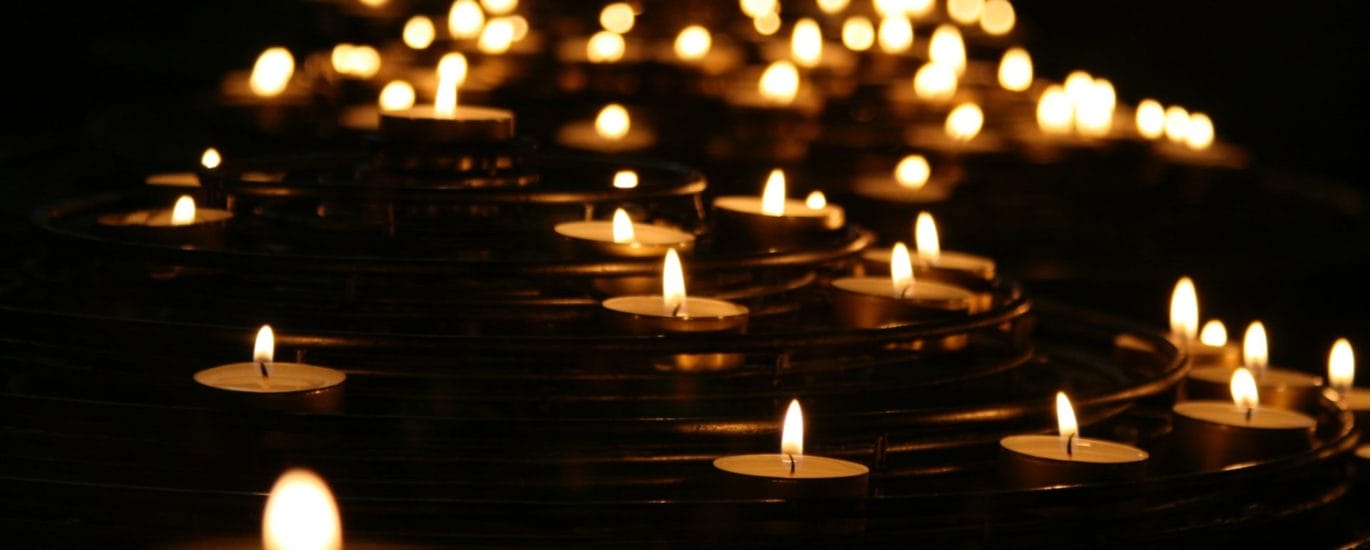
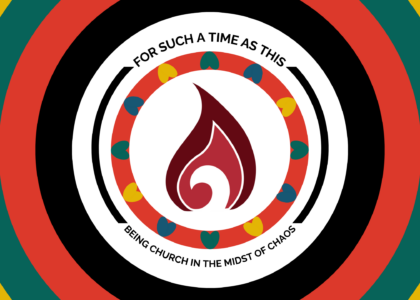
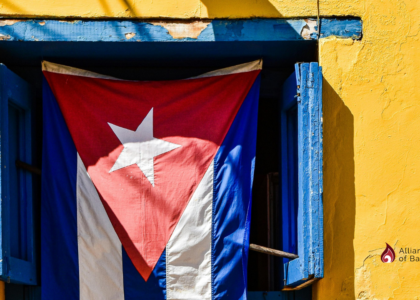
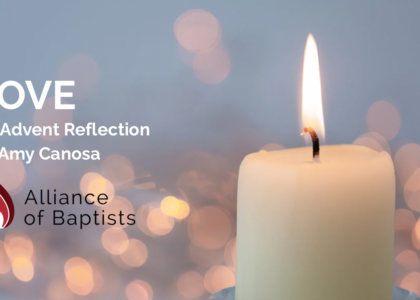
Thank you, Aurelia. Well said.